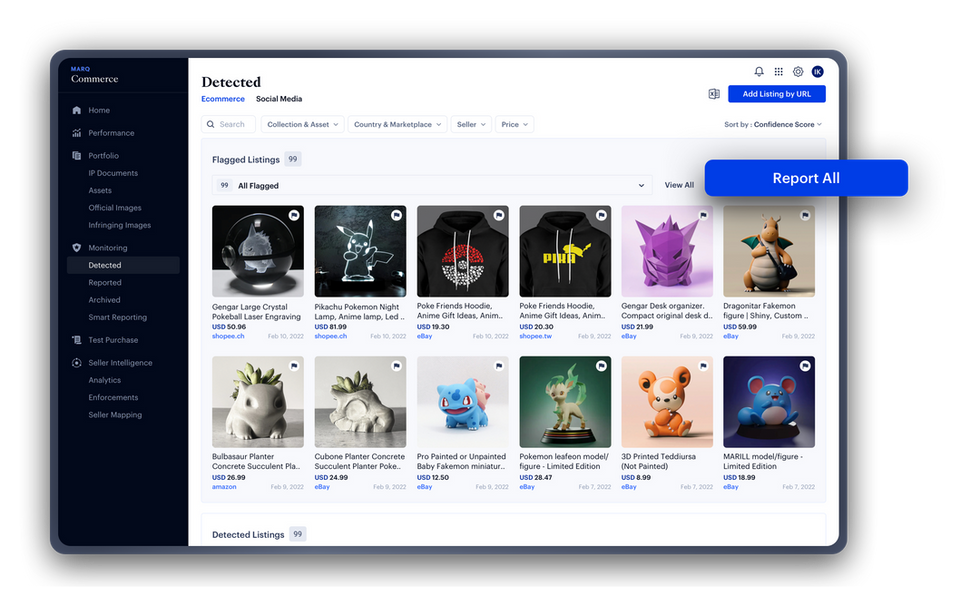🔦 Spotlight
Hello Los Angeles,
This week, LA proved it can scale in silence and shine in the spotlight, sometimes in the same breath.
Let’s start with the quiet powerhouse.
Culver City-based Silvus Technologies is being acquired by Motorola Solutions for $4.4 billion in up-front consideration, with the potential for an additional $600 million in earnout payments, bringing the total deal value to $5 billion. Silvus builds tactical mesh radios, rugged high-bandwidth systems used by militaries, emergency responders, and defense contractors in more than 40 countries. These aren’t just walkie-talkies. They are engineered to deliver secure, uninterrupted communications in places where cell service and Wi-Fi don't stand a chance. Think natural disasters, war zones, and remote terrains. The tech spun out of DARPA-funded research at UCLA, and this deal is a reminder that LA isn’t just cranking out consumer apps and AI models. We’re exporting national security infrastructure too.
But while Silvus was locking down defense contracts, another LA startup was breaking the internet.
 e.l.f. Beauty Chairman and CEO Tarang Amin and Rhode Founder Hailey BieberImage Source: e.l.f. Beauty
e.l.f. Beauty Chairman and CEO Tarang Amin and Rhode Founder Hailey BieberImage Source: e.l.f. Beauty
Rhode, Hailey Bieber’s skincare brand, is being acquired by e.l.f. Beauty in a deal valued at up to $1 billion. The structure includes $600 million in cash, $200 million in stock at closing, and up to $200 million in earnout payments tied to Rhode’s performance over the next three years. Not bad for a brand that launched in June 2022 and built a cult following off just a handful of products and a crystal-clear brand identity.
Yes, it’s celebrity-founded. But Rhode didn’t just ride a name. It built a movement. The brand cut through a saturated beauty market by doing less: launching with a few standout hero products, keeping the aesthetic clean and consistent, and using community-first marketing that turned product drops into cultural events. The results speak for themselves. $100 million in net sales over the past year and a loyal fanbase that treats peptide lip treatments like limited-edition merch.
Bieber wasn’t just the face of the brand. She helped shape the strategy, led product development, and drove creative decisions from day one. Following the acquisition, she’ll continue as Chief Creative Officer and Head of Innovation, while also stepping into a new role as strategic advisor to e.l.f. Beauty. Rhode will continue to operate independently, with its headquarters remaining right here in LA.
This isn’t just a win for Rhode. It’s another clear signal that LA is where culture, commerce, and execution come together and scale fast.
Keep reading for the latest LA venture rounds, acquisitions, and fund moves making headlines this week.
🤝 Venture Deals
LA Companies
- Bezel, a luxury watch marketplace, recently secured a $670K investment from Hyperspace Ventures as part of a broader $6.8M funding initiative. This investment aims to support Bezel's growth and enhance its platform for authenticated luxury watch trading. - learn more
LA Venture Funds
- Sound Ventures participated in the Series A funding round for General Counsel AI, a startup using artificial intelligence to streamline in-house legal work. The platform helps legal teams draft documents faster, stay compliant, and eliminate repetitive tasks by embedding company knowledge directly into its AI workflows. With Sound Ventures' backing, GC AI plans to scale its team and expand the platform’s capabilities to serve more enterprise legal departments. - learn more
- Kairos Ventures participated in Vivodyne’s $40M Series A funding round, reaffirming its commitment to advancing human-relevant drug development technologies. Vivodyne, a biotech company based in Philadelphia and San Francisco, is pioneering the use of AI and robotics to grow and test thousands of lab-grown human tissues, aiming to replace traditional animal testing in drug development. This approach addresses the high failure rate of clinical trials by providing more predictive human data, potentially accelerating the development of effective therapies. The new funding will support the expansion of Vivodyne's operations, including the opening of a 23,000-square-foot fully robotic laboratory in South San Francisco, to meet the growing demand from pharmaceutical clients. - learn more
- Fifth Wall co-led Wander’s $50M Series B funding round, joining QED Investors and others to support the company’s mission of redefining luxury vacation rentals through technology and consistency. Wander operates a vertically integrated platform that combines premium vacation homes with hotel-grade service, powered by its proprietary AI system, WanderOS. With over 1,000 properties already live and a Net Promoter Score of 85, Wander aims to scale toward 300,000 homes globally, offering a trusted and seamless experience for travelers and property owners alike. - learn more
- Clocktower Technology Ventures and Overture VC participated in GridCARE’s $13.5M seed funding round, supporting the company's mission to address the growing power demands of AI infrastructure. GridCARE utilizes advanced AI to identify and unlock underutilized grid capacity, significantly reducing the time required to power data centers from several years to just 6–12 months. By bridging the gap between AI developers and utility providers, GridCARE aims to accelerate the deployment of AI technologies while enhancing energy resilience. - learn more
- Clocktower Technology Ventures participated in Monarch Money’s $75M Series B funding round, reaffirming its support for the personal finance platform's mission to enhance financial wellness for households. Monarch offers tools for aggregating financial accounts, visualizing net worth, tracking budgets, and collaborating with partners or advisors. The new funding will enable Monarch to expand its team and further develop its platform to better serve its growing user base. - learn more
LA Exits
- TinyWins, the LA-based digital creative studio known for blending emotional storytelling with performance-driven content, has been acquired by marketing consultancy The Shipyard.Best known for its work with brands like Disney, Netflix, and Google, TinyWins will continue to operate under its own name and leadership in Los Angeles. The acquisition gives TinyWins access to deeper strategic and media resources, while The Shipyard expands its creative firepower and strengthens its presence on the West Coast. - learn more
- Dolby Theatre, renowned for hosting the Academy Awards, has been acquired by Master Investment Group in partnership with Jebs Hollywood. The new ownership plans to introduce a series of events celebrating Middle Eastern culture, aiming to showcase the region's rich heritage, music, and traditions. This initiative seeks to foster community engagement and promote cultural exchange by bringing diverse artistic expressions from the Middle East to a global audience. - learn more
Download the dot.LA App







 e.l.f. Beauty Chairman and CEO Tarang Amin and Rhode Founder Hailey BieberImage Source: e.l.f. Beauty
e.l.f. Beauty Chairman and CEO Tarang Amin and Rhode Founder Hailey BieberImage Source: e.l.f. Beauty